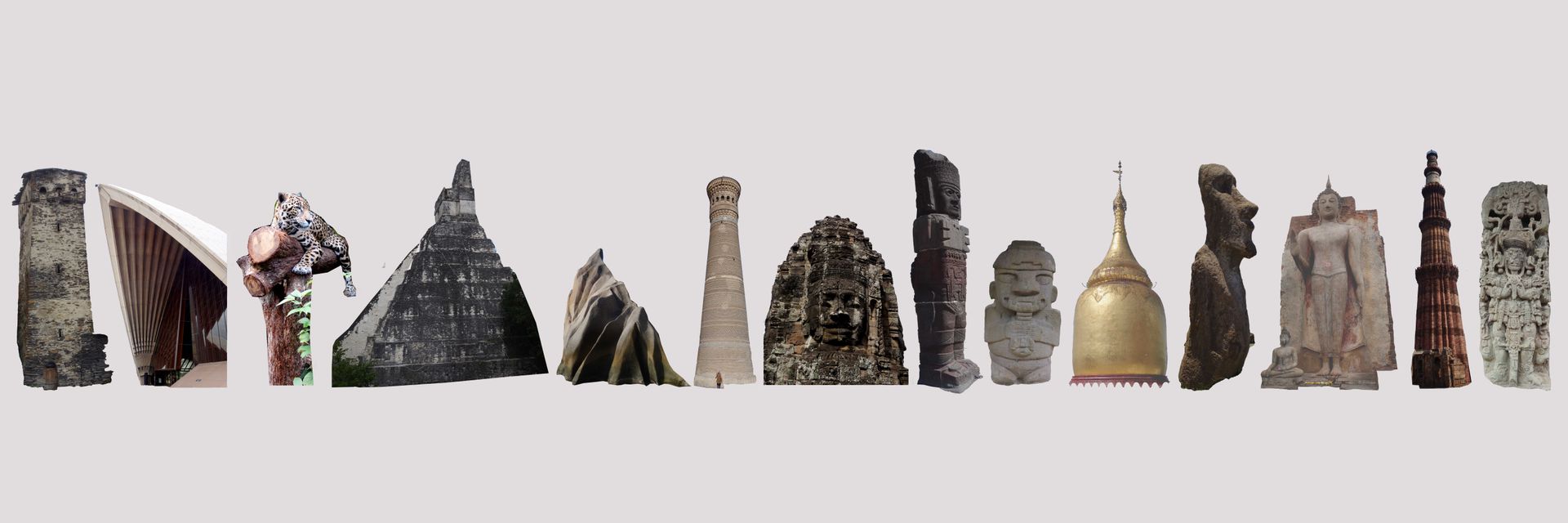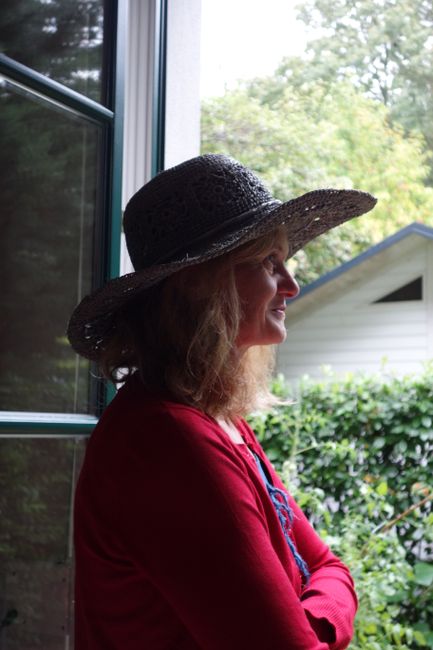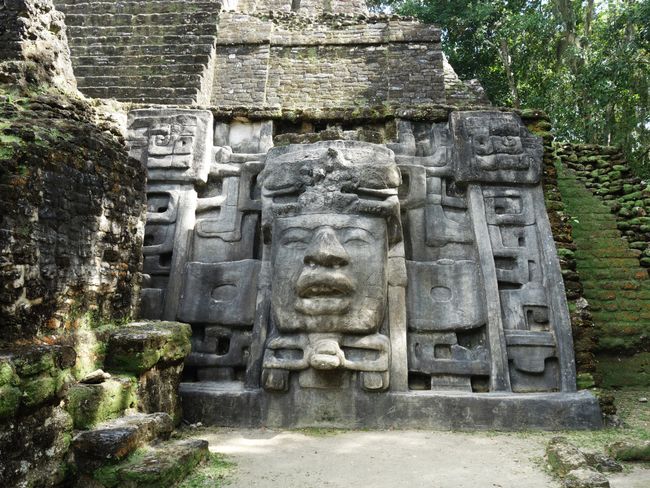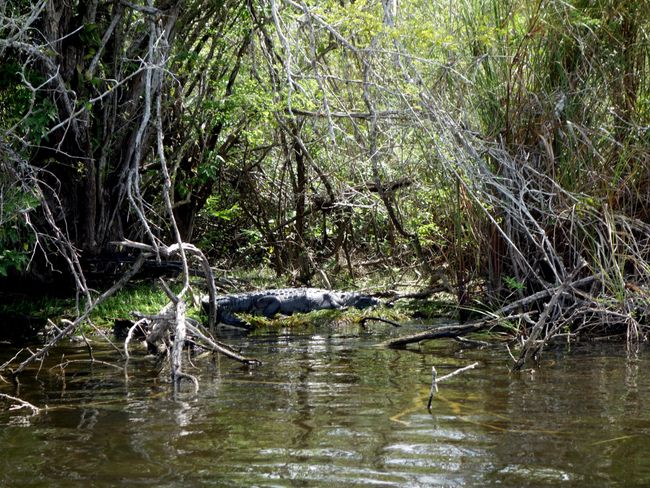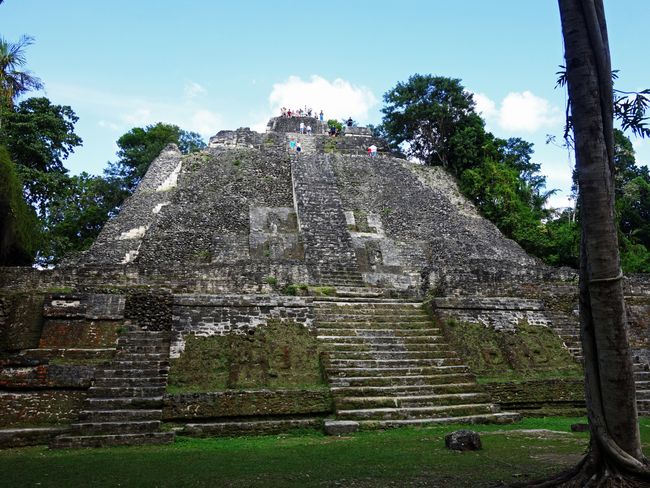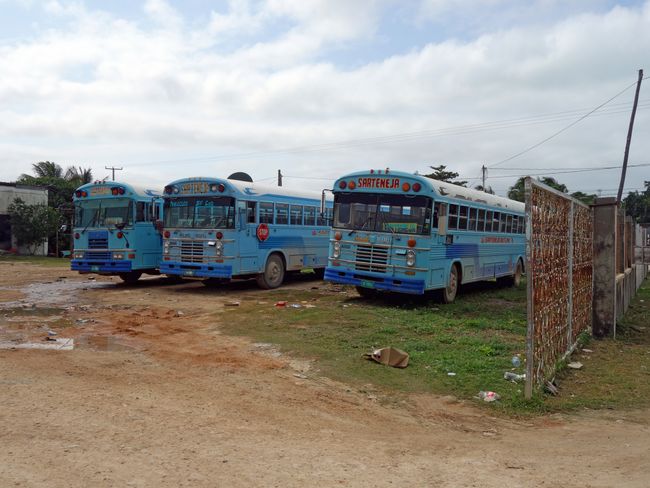Belize - blown away
Cyhoeddwyd: 21.01.2019
Tanysgrifio i'r Cylchlythyr
Machismo, yes, it exists in Belize too. The further north you go, the more Spanish is spoken. Mexico is close, and with that, the nice, relaxed Caribbean feeling disappears more and more. Sarteneja, our last stop in Belize, is only about 20 km from Mexico. Let me say upfront, I would strongly recommend avoiding the place until it maybe becomes a bit more accommodating to guests. But back to the machismo. The owner of the hotel where we are staying is a real estate agent - and has the 'charm' of a real estate agent, which I must admit is not my cup of tea. Fernando is also a macho, which I can't stand. For example, he always only communicated with Roby, even when I was present and even when it was about me: 'Tell your wife...'. In our recent argument, he explained to me (to show his openness) that he knows that women can do all sorts of things: drive a car, fly planes, or work in technical professions. He also said that he didn't want to be rude, but in his culture, it is customary to discuss things with the highest-ranking person in the family: the man. He sees couples as a unit and not as two individuals. Another example: When the chain of the bike I rented from him jumped off the gear (because the gear shift was broken), Fernando fixed the problem quickly, but instead of just handing me the bike, he sat on it, rode past me, and said everything was fine - as if to say: 'You fool, what do you want, everything is in perfect order'. My reaction was intense, too intense for what a Belizean-Mexican man is used to. I admit, one can be more subtle, funnier, and less aggressive than me - and probably that is more strategically wise. But at least he announced that in the future, he would address Europeans, both men and women, equally. Whether he will stick to it is another question, as the tip came from a 'strange lady'.
Back to Sarteneja: We wanted to visit an undiscovered piece of paradise - and ended up in a barren place where there is simply nothing to do. We are by the sea, but getting into the water is difficult: going in doesn't work because everything is full of mud that starts to stink when you stir it up, and you also get stuck in it. Unfortunately, the few piers that lead further into the sea do not have ladders or steps to step into the water. That means you have to slide into the water, which is possible, but considering that the water is very murky and you can't see where and how the ground is, it's not much fun. It's even more difficult to get out of the water: the high piers are rough (so you hurt yourself when climbing out) and the rocks that partly protrude from the water are even rougher, so you get lots of small cuts on your palms. There is no beautiful beach in the actual sense, only very small areas where you can sit (often with a view of the next garbage dump). The landscape is actually nice, but the smoke clouds on the horizon, probably from the industrial plants in the two nearest larger cities, somewhat cloud the impression.
It is also annoying that prices here tend to be outrageously high. One has the feeling of being ripped off: for example, at the hotel, laundry service (in Caye Caulker US $ 6, here US $ 20), on boat trips (the tour to Lamanai, see below, including boat ride, lunch, nature and Maya ruins guide, and admission ticket, cost US $ 50 per person, here they demand US $ 125 for a half-day tour to see the manatees that live here). But not everyone wants to make money: when we asked if we could buy sandwiches for our bike ride here, the owner of a small shop, lounging in her chair without any other customers in sight, said, 'I have no time'. But the large expat community is nice, which we regularly meet during our walks and in one of the three pubs in the evening - and whose members already greet us on the street.
Back to the real Belize, where it is Caribbean: Lamanai is the longest continuously inhabited Mayan city (until the 18th century, well beyond the arrival of the Spaniards, who were not interested in Belize). The ruins are best reached by boat along a river, a one-and-a-half-hour ride through the jungle, with crocodiles on the banks, iguanas in the treetops, and mini-bats on the tree trunks. In Lamanai, you will find some nice pyramids. One of them is so high that you can see the beautiful landscape over the rainforest, and another one has a wonderfully preserved mask ornament from the 4th or 5th century - it is so perfect today because the pyramid was built over after a few decades and the masks were only uncovered again in the 1980s.
I like Belize - and I would come back anytime, but I only like Belize where it shows that it belongs to the Caribbean. I find the Mexican-Spanish part less pleasant. A bad omen for five weeks in Mexico, or?
Tanysgrifio i'r Cylchlythyr
Ateb
